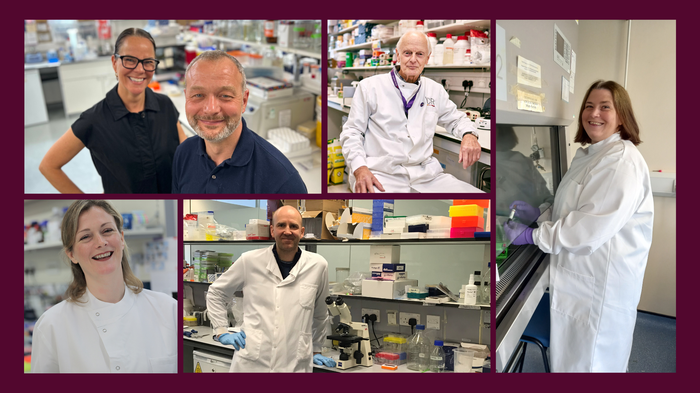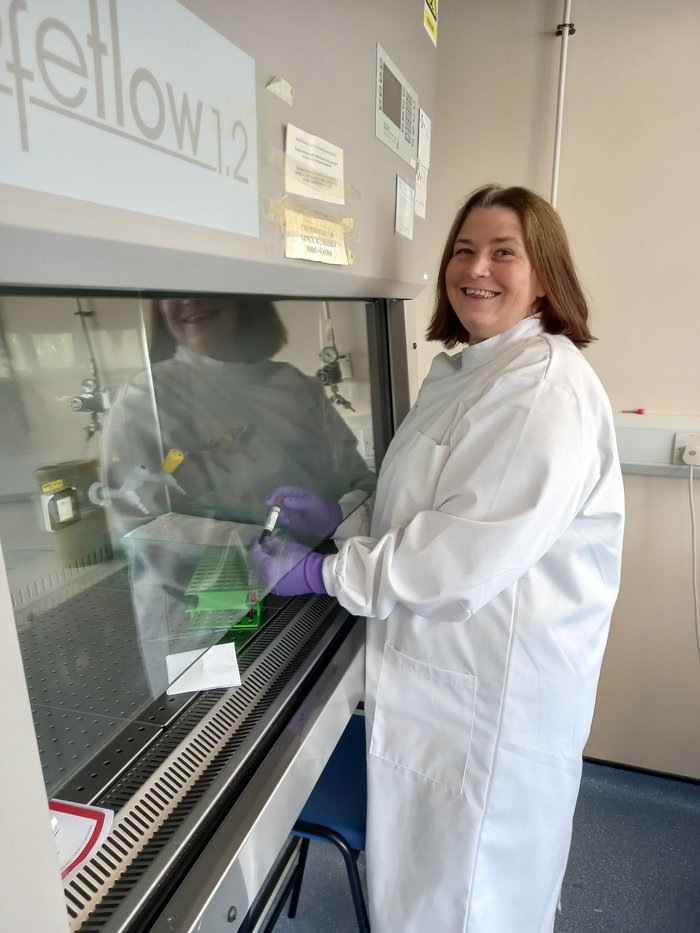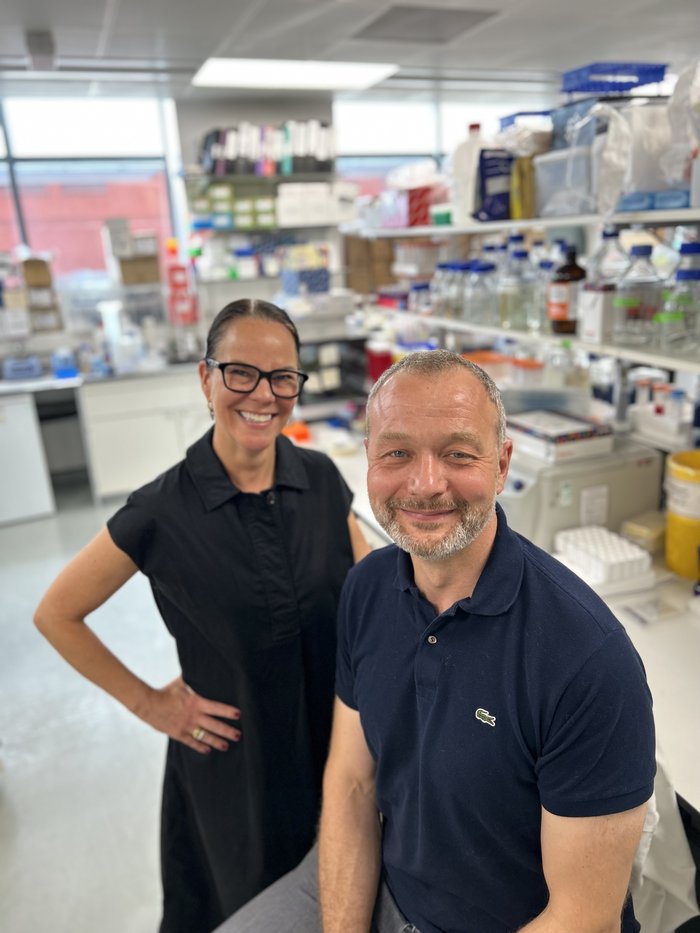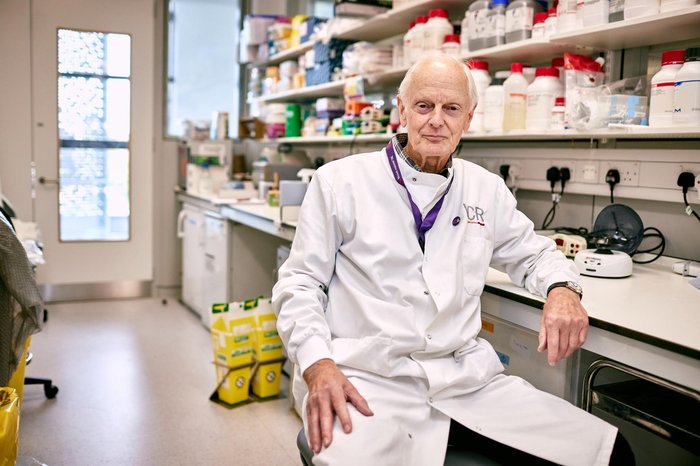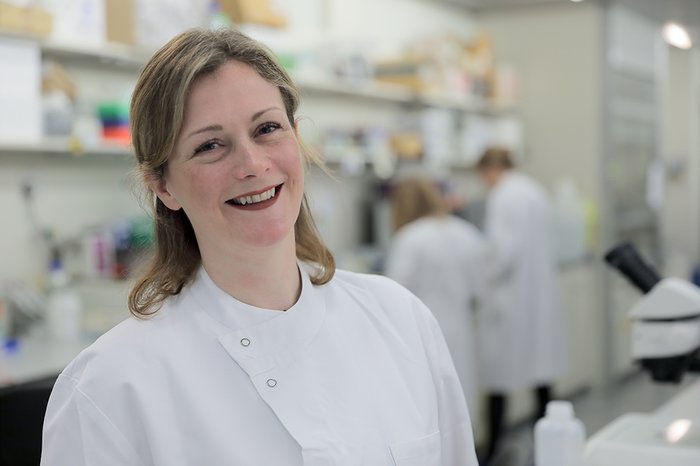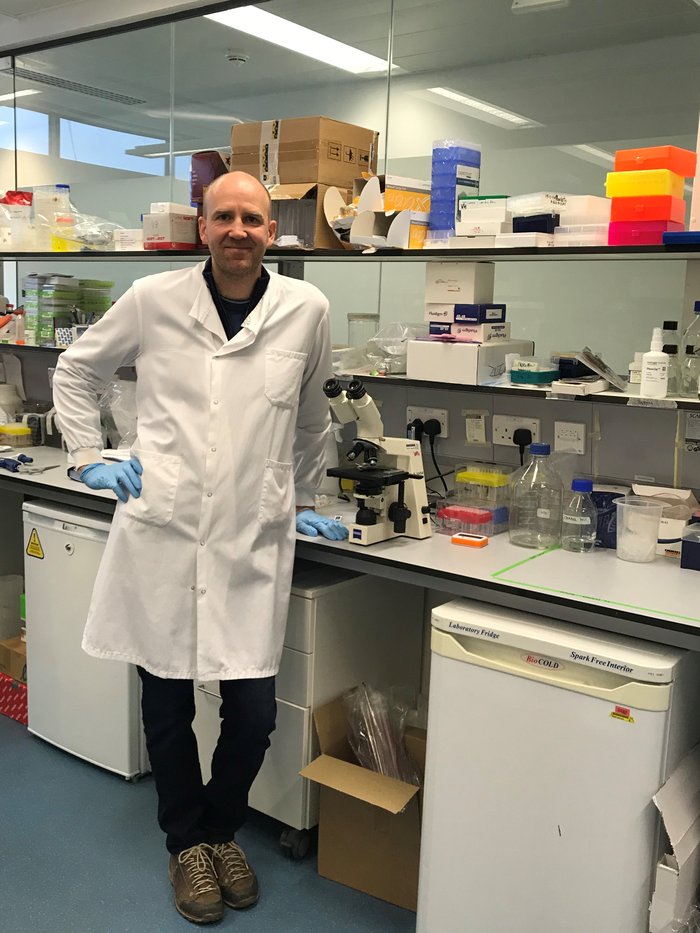What can we achieve with £1 million?
United Kingdom
From targeted treatments to shrinking side-effects, we're proud to announce we’ve invested over £1,000,000 funding five research projects, across five different blood cancers. Here's what our researchers are looking to achieve.
1. Better ways of screening for blood cancers
Our new research projects are helping to find better ways for screening blood cancers.
Professor Anderson and her team from the University of Aberdeen are studying the links between DNA and the environment to find out what might be responsible for causing myeloproliferative neoplasms (MPN).
An increased number of blood cells cause this rare and often hidden condition. Understanding how it develops and how factors such as the job we do and where we live could impact whether someone develops MPN are really important.
So many people are unaware that MPNs are a blood cancer. Research like this, to understanding the genetics underpinning the development of blood cancers will also help us develop new treatments against the disease.
- Blood Cancer UK Research Director
Blood cancer is the UK’s fifth most common cancer, with over 40,000 people diagnosed each year in the UK. There are approximately 250,000 people living with blood cancer and 16,000 people die from the disease every year, making it the UK’s third biggest cancer killer. Better ways to understand more about how blood cancers develop and to detect and diagnose this disease earlier are more important than ever to give people affected by blood cancer the best possible chance of survival.
2. Quicker ways to diagnose blood cancers
Our researchers are finding quicker ways to diagnose blood cancers. This is important for those with blood cancer as a quicker diagnosis means people are likely to respond better to treatment.
Myeloma is a type of blood cancer that affects a type of white blood cell called plasma cells. Professor Tooze at the University of Leeds hopes to understand more about how plasma cells become cancerous and start to divide and multiply out of control.
Professor Tooze has developed a test, which he believes is key to understanding how plasma cells become cancerous so new ways to diagnose and treat this disease can be developed before it becomes aggressive.
Our funding has already helped to improve treatment for myeloma. 50% of people will now survive their myeloma for five years or more after diagnosis, but current treatments for myeloma don’t cure people of the disease.
We hope by conducting this research, new and quicker ways to diagnose and treat myeloma can be developed, which will eventually lead to a cure.
3. New and more effective treatments for blood cancer
Ultimately, we want to find new and more effective treatments for blood cancers.
While chemotherapy remains one of the most commonly used treatments for blood cancers and uses drugs to destroy cancer cells, it also damages healthy cells.
In one of the new projects, Professor Rabbitts hopes to develop a new, more effective treatment for a fast-developing type of blood cancer often treated with chemotherapy.
The treatment he wants to develop for T-cell acute lymphoblastic leukaemia (T-ALL) only targets the cancer cells, leaving all healthy cells unharmed.
4. Treatments for blood cancer with less side effects
Another type of blood cancer that develops quickly is acute myeloid leukaemia (AML). This type of blood cancer often needs urgent chemotherapy treatment which often has debilitating side effects. These side effects can include hair loss, sickness and vomiting, brain fog and fertility problems.
Dr Payne wants to understand more about a specific alteration that causes AML. She hopes to develop a new, more effective drug treatment with fewer, less toxic side effects that specifically target this alteration, allowing more people to respond well to treatment.
Finding new and better treatment for blood cancers such as AML without side effects is really important to us and the 3,100 people who are diagnosed with AML each year.
5. Giving people with blood cancer a better quality of life and the best possible chance of survival
At the heart of our research is our mission is to give people with blood cancer a better quality of life and the give them the best possible chance of survival.
Professor Helgason is researching a new way to treat chronic myeloid leukaemia (CML), a slow growing type of blood cancer that currently has no cure. He is combining drug treatments with other treatment methods to create new and better treatments for people with this disease, getting us closer to a day where no lives are lost to blood cancer.
Ultimately this could mean a future where there are new and better treatments for people with CML. This research may also have important outcomes for other blood cancers that are also caused when blood stem cells undergo unusual alterations.
- Professor Helgason, University of Glasgow
We need your support
This research wouldn’t be possible without your support, and we look forward to sharing more updates about the research we fund with you!
Together we have one mission, to beat blood cancer.
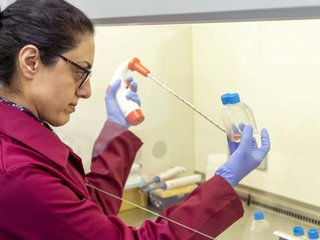
Fund blood cancer research
The day we beat blood cancer is now in sight, but we need your help to get there.

